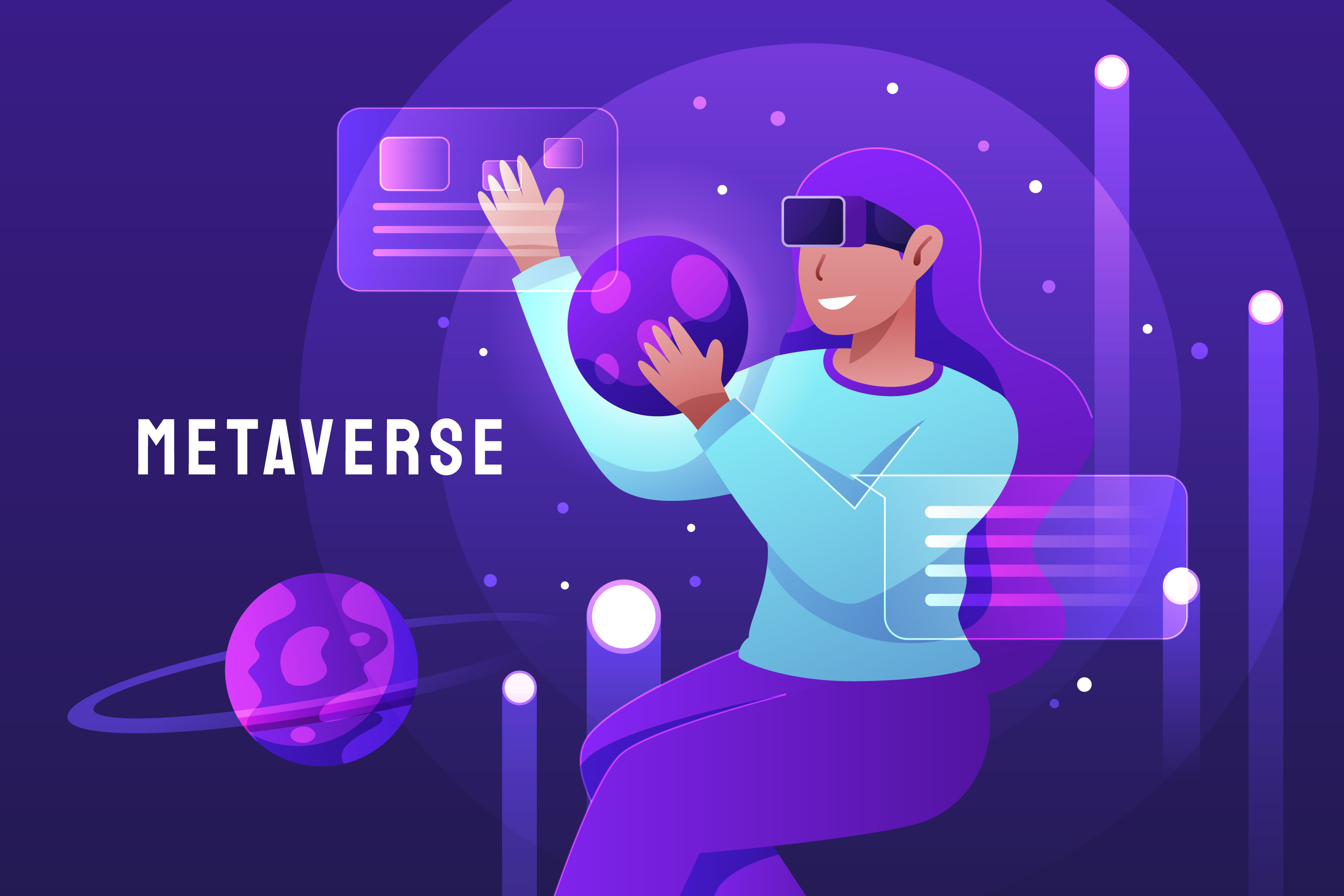The intersection of gaming and the Metaverse | Cloud Gaming Servers
The intersection of gaming and metaverse needs cloud gaming servers. Lets understand more about it.
If you're not sure what the Metaverse is, despite hearing the term a lot (due to Mark Zuckerberg's Metaverse), you're not alone.
The Metaverse, according to the traditional definition, is a permanent virtual realm in which individuals may interact with one another and with digital items via their avatars. Aside from gaming, these can be just social platforms where individuals connect, attend events, purchase virtual items, and so on.

Why is gaming a Brand's Gateway to the Metaverse?#
The gaming business has consistently been at the forefront of digital change and innovation. Playing video games is something we're all likely to do together in the metaverse. Mark Zuckerberg's Metaverse is the most recent addition to a lengthy history of breakthrough inventions pioneered by game development companies, including online payments, cloud gaming services multi-sided platforms, digital commodities, SaaS, cloud gaming servers, and social networking. Brands may get unique insights into the video game business by studying these early pioneers, allowing them to speed innovation and profit on the growing Metaverse economy.
The Effects of Cloud Gaming on the Metaverse#
Cloud gaming services have been around for a while. It comprises storing video game data and doing game-related processing activities on cloud gaming servers before delivering it via the Internet to a personal computer, mobile device, or game console. One of the key benefits of cloud gaming services is that it does not require powerful hardware to operate. Cloud gaming services computing necessitates low latency networks that place cloud gaming servers as near to end users as feasible. Hyper-scale cloud service providers' present centralized network designs are unsuitable for these requirements.
3 takeaways from Metaverse Gaming#
Here are three things the game industry excels at that any business might emulate as they develop their approach to the Metaverse:
1. Providing tailored and adaptable experiences.#
Games utilize a variety of strategies to interest users and optimize time spent in various settings. Mark Zuckerberg's Metaverse also allows game development companies to provide a hyper-personalized experience that is not constrained by the real world's limits. The Metaverse provides marketers with endless opportunities to tailor client experiences, from emotional avatars to personalized shopping options.
2. Uncovering hidden complexities.#
Consider "dripping" features and functionality to your audience over time while designing your brand's metaverse experience. Prioritize the most crucial information they need to know right now. And this lesson isn't limited to the metaverse. Gaming businesses have also figured out how to entice non-gamers to use their platforms by staging immersive, virtual concerts that appeal to both gamers and non-gamers.
3. Taking use of network effects.#
Games Development Company and developers of Metaverse games have discovered that by incorporating social components, players produce their material, resulting in a virtuous loop. This loop, however, might backfire if a group becomes "toxic." This occurs when gamers degrade the experience of those who join. When this occurs, significant efforts are made to preserve a healthy community through community participation, moderation, or ambassador programs. Consider whether you can create network effects by allowing your customers to connect in ways that improve others' experiences or inspire others to join.

Putting One's Toe in the (Virtual) Water#
Metaverse worlds (m-worlds); augmented, virtual, and mixed-reality (AR, VR, and MR); and virtual assets supported by the Web3 technology stack are all merging technologies in the Metaverse. A more agile approach to accessing the Metaverse — and experimenting with the technologies that form it — is frequently the best choice for many companies. Whether you want to start researching cryptocurrencies or technologies like VR and AR, a test-and-learn methodology is critical to metaverse innovation.
First Steps into the Metaverse#
So you're ready to start experimenting in this fascinating new virtual environment, but you're not sure where to begin, like many companies. Before you decide on your Metaverse strategy, you must first assess how necessary it is for you to test — and at what degree of investment. In the Metaverse, certain sectors and product categories just make more sense than others.

Conclusion#
In some aspects, Mark Zuckerberg's Metaverse is growing quickly, while in others, progress feels glacial. It's vital to realize that this new ecosystem is made up of powerful and highly adaptable video game worlds, which require a long time to construct and test properly.
We are pleased by the influx of new game development companies into the industry and feel that the metaverse that we all desire will evolve and ship far faster than prior technology advancements. It's also worth mentioning that the more layers of new technology you include in your metaverse pilot projects, the more specialized they'll become. Most essential, keep in mind that there are no hard and fast rules when it comes to working in the metaverse. Plan on iterating, improving, and evolving your metaverse experience plan over time.
Why are cloud servers better? Know why!
